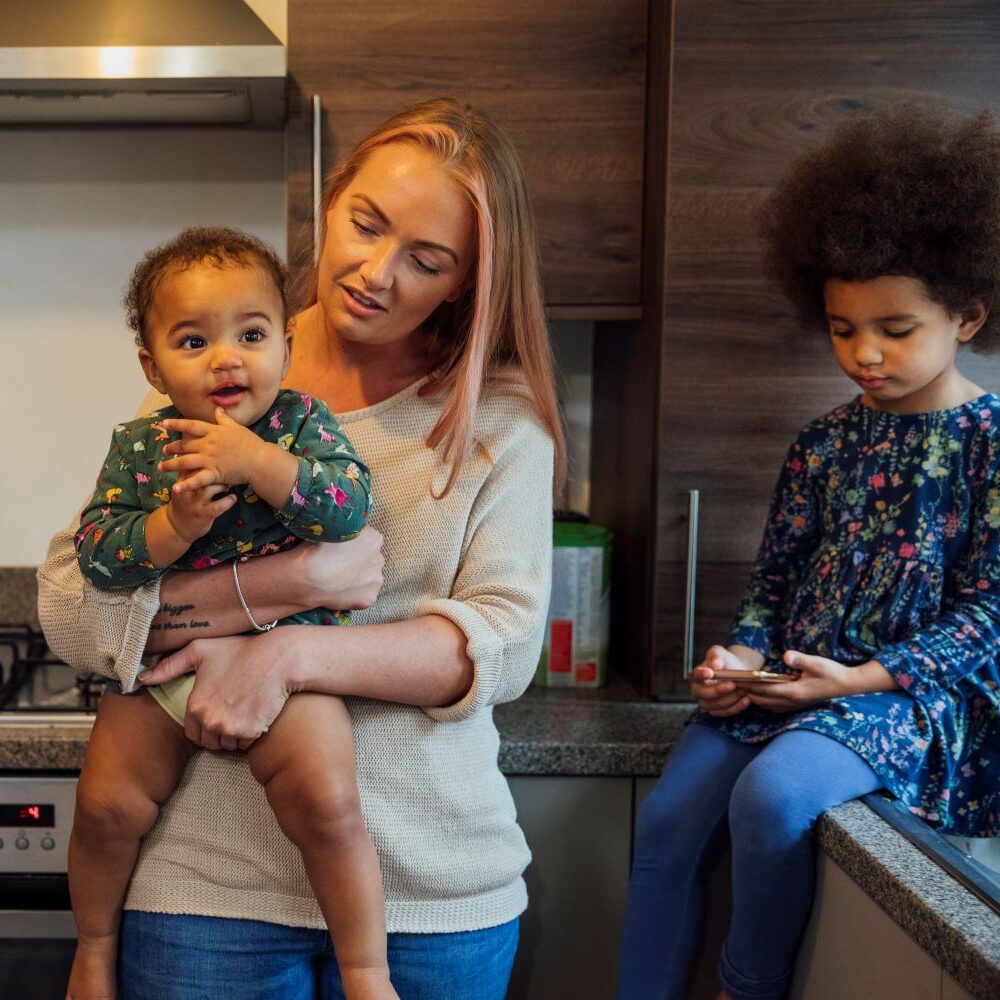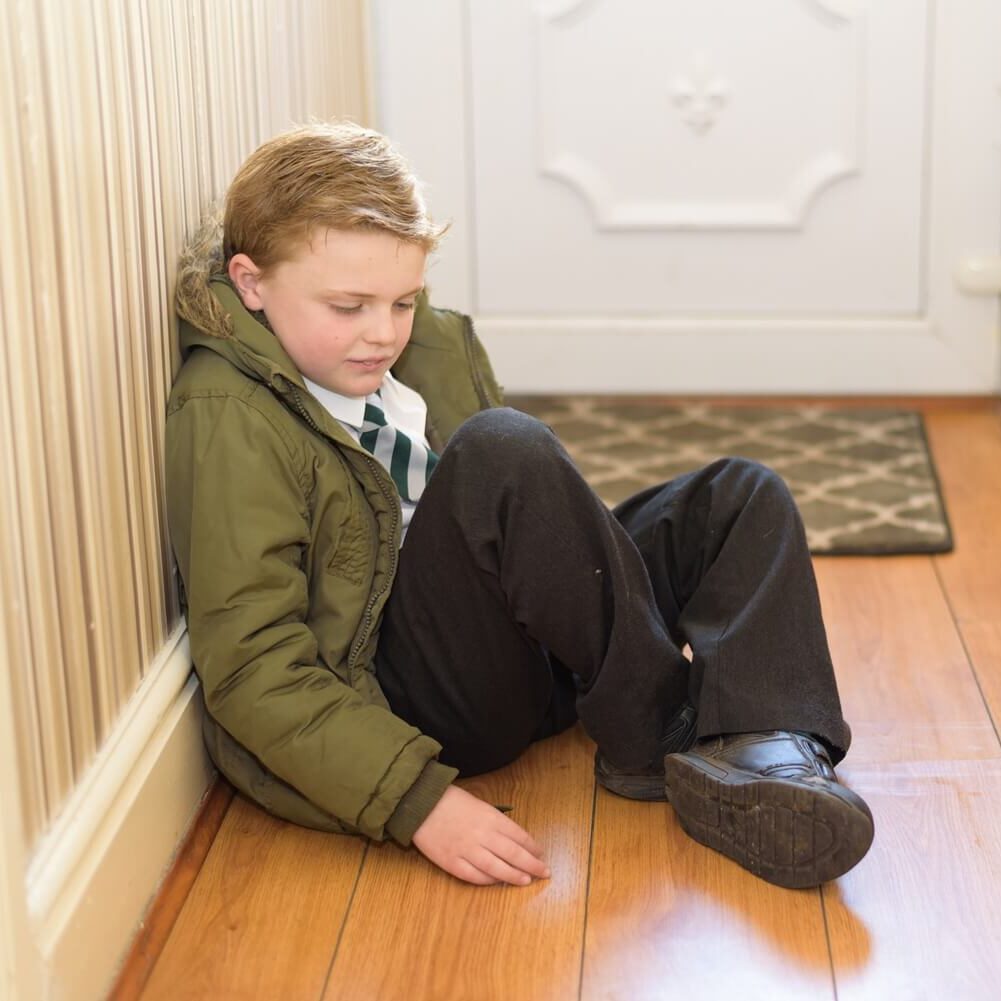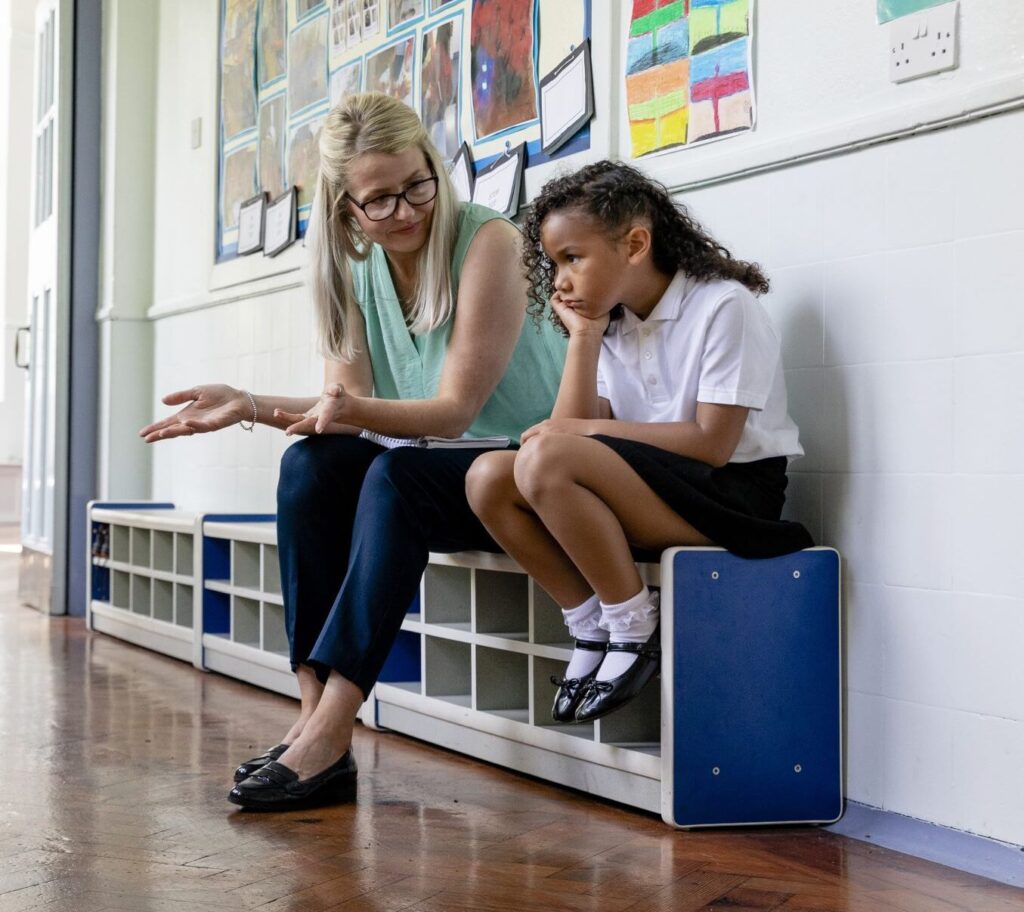Our services are seeing more and more children who are worried about going to school. We spoke to a colleague at Family Action’s Lincolnshire Behaviour Outreach Support (BOSS) to learn more about emotionally based school avoidance (EBSA) and what you can do as a parent if your child is unable to go to school.
In this article, we look at:
- what EBSA is
- common causes of EBSA
- how a child or young person’s age can have an impact
- how EBSA affects parents
- what parents can do to support their child.
What is EBSA?
Emotionally based school avoidance is a term that describes a child or young person being unable to go to school because of issues that make them feel negative emotions – anxious thoughts and feelings in particular. For this reason it’s also sometimes referred to as school anxiety.
EBSA used to be called school refusal, and it’s still referred to as this in a lot of information you’ll find online. However this is an outdated term that places blame on the child by implying they’re making a straightforward decision to refuse to go to school. It also doesn’t acknowledge the reason why the child can’t go to school, and it’s this that we need to get to the bottom of.
The important distinction here is “can’t” versus “won’t”. Children and young people experiencing EBSA CAN’T go to school – it’s not that they’ve woken up and decided they WON’T go to school.
You might also hear EBSA called emotionally based school absence or emotionally based school non-attendance. These phrases go a step further in removing blame from the child or young person in question, but the exact term you hear may vary depending on your location within the UK.
What might cause EBSA?
There are many reasons why a child or young person might not want to go to school – basically anything that might cause them to feel some level of anxious thoughts and feelings. They might be:
- being bullied
- worried about not doing as well as they hoped or expected academically
- struggling with their mental health (for example low self-esteem, self-confidence or mood)
- having difficulties managing and regulating their emotions
- experiencing difficulties with their relationships, whether that’s at home or at school
- dealing with high levels of family stress
- young carers who are worried about their parents
- coping with trauma or loss.
Whatever the issue, anxious thoughts and feelings are at the root of it.
There could be a single reason or a combination of things, so do what you can to find out exactly what it is that is making your child not want to go to school. Make it clear to your child or young person that they can talk openly and won’t be judged. And if there’s another adult that you both trust that they’d prefer to talk to, they could do that instead. The important thing is that you or the trusted adult actively listen to what your child is saying to find out the root cause of their worries. That’s the only way you can work out the steps to take to address it.
Children with special educational needs and disabilities – particularly autistic children – may also find it difficult to go to school. This can be particularly true for those with demand avoidance, which is a persistent resistance to doing things that are essential or expected for everyday life. Examples might include eating, sleeping and going to school. Autistic children also often struggle with change and can experience anxiety around this, and without the right support some children can find school very difficult.
How your child or young person’s age can have an impact
The age of your child or young person may influence why they may feel unable to go to school, but anxious thoughts and feeling will always be underneath it all. Their age may also affect how able they are to explain how they’re feeling and therefore how they show their anxiety.

This might mean that younger children might be more likely to have a meltdown and refuse to get out of the car, as they’re less able to explain what’s making them feel they can’t go to school. Older children and young people are more likely to be able to explain how they’re feeling and what’s making them feel that way, but it doesn’t always mean they’ll want to. Your young person may look for a bit more space and privacy as a teenager than they did when they were younger. Let them know that you’re there for them and want to listen, then give them the space to open up in their own time. You’ll find more guidance in our article: Supporting your teenager’s mental health.
It’s also worth acknowledging the generational differences between you and your child and how you grew up. For example, social media didn’t exist for many parents when they were children, making it impossible to understand what it’s like to grow up with social media now. Being a child now is completely different to what it was even twenty years ago, with different pressures and worries to consider.
The effects of EBSA on parents
It’s important to acknowledge that EBSA affects parents too. For example, as a parent, you know that the law is that your child has to go to school or be educated in some way, and you may already be getting letters from the school around poor attendance. But you may also feel reluctant to try to get your child to go somewhere that affects them negatively and causes them to have anxious thoughts and feelings.
You may have frustrations around the level of support and understanding from your child or young person’s school. This can vary a lot from school to school. You may also have found that primary schools are more understanding and flexible than secondary schools, and may offer things like part-time timetables, phased returns, safe spaces and trusted adults to help children feel more comfortable.
You may also have your own pressures. Perhaps you’re thinking about the fact that you have to get to work, but you’re not sure how you’ll manage it if your child doesn’t go to school. If you feel comfortable doing so, explain the situation to your employer – many will be understanding and flexible. And beyond that, try to confide in friends or family who you’re close to and trust not to make judgements about the situation. Having someone who you can talk to on particularly tough days will help you, even if it doesn’t fix the problem.
Finally, Lincolnshire Behaviour Outreach Support explained that they’ve seen an increase in children being home educated, particularly where they’ve felt anxious about going to school. For some parents, that’s their preferred solution, and if this is something you’re considering, take a look at the government guidance on educating your child at home. But homeschooling can be a challenge and also isn’t possible for everyone, so let’s take a look at what parents can do to support children going through EBSA.

What can parents do to support their child?
Firstly, to be able to help your child as much as possible, you need to know what is making them feel anxious about going to school. We’ve already touched on this, but the most important thing is that you don’t assume you know what the problem is. As adults, we look at things differently to our children. We might have more perspective on things than our children, and we definitely have different worries.
For example, if your child isn’t going to school and you don’t know the underlying reason, you might be tempted to take away their phone as a punishment. But your child’s phone might be their only link to their friends, and if your child is being bullied, that phone might prove to be a lifeline. This is another reason why it’s so important to talk to your child and find out as much as you can about exactly what’s going on.
You should also speak to your child to hear what they think would help them. What do they want to happen? You can make suggestions, but it’s important that you’re led by your child when it comes to finding a solution, so as not to unintentionally make the situation worse.
Again, bullying is a good example, because your natural reaction might be to tell the school. But that might actually increase your child’s anxious feelings, because they might now be more worried that the person bullying them will find out they’ve told someone. Instead, find out what your child wants to do.
If the issue is at school, that’s where the change needs to happen. When you’ve agreed with your child what they want to do, you might want to speak to the school to see if they can put in place some support for your child so they feel able to return to school.
If things at home are making your child anxious about going to school, you might also want to speak to the school about doing an early help assessment to see if you can get some support, perhaps from a family support worker. An early help assessment might also be beneficial if your child is a young carer, and they’re worried about leaving their parents to go to school. For more information on early help assessments in your area, see your local authority’s website.
Finally, it’s also worth doing what you can to help boost your child’s self-esteem and confidence – but make sure you do this alongside tackling the issue that’s causing your child’s school anxiety. Supporting your child to feel happy and secure at home is great, but to have a long-lasting impact, it’s important to deal with the root cause of their school anxiety. For more tips and things to try at home, see our articles: Children’s mental health – 5 simple ways to help and Supporting your teenager’s mental health.
More information and support
For more support, use our service finder to see what Family Action services are available in your area, or get in touch with FamilyLine via web chat, text, email or phone. You can also check your local authority’s website for information relating to your area.
For mental health support for children and young people, see Kooth and Young Minds.

Call, text, email or web chat FamilyLine
If you’re feeling overwhelmed, worried or upset about any aspect of your family life, FamilyLine is here for you. We offer free emotional support and guidance on family relationships, conflict, parenting, caring, financial worries and more.
Contact FamilyLine




